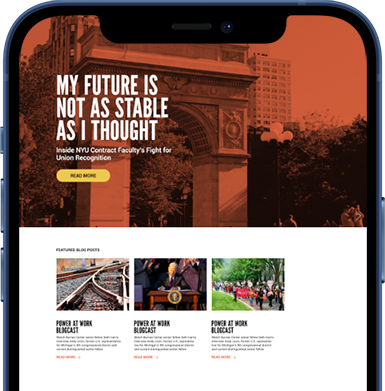Most workplace dramas don’t play out in public. Yet, Elon Musk’s takeover of Twitter can't stop making headline news. It isn’t pretty. It's actually more like watching a horrible accident unfold in slow motion. But Musk's Twitter takeover has been instructive for American workers about the risks we face at the hands of our bosses, even if they aren’t as – well, chaotic – as Mr. Musk.
Here are five lessons we can draw from the Twitter Turmoil:
1. Corporate employers are not always rational.
Both traditional economics and our public discourse assume corporations behave rationally. Even when we can't understand what they are doing, the assumption is that there must be some profit-maximizing strategy at play. This experience tells us that we cannot trust that assumption.
Musk’s team reportedly laid off workers they needed. Then, inexplicably, Musk emailed (!) his remaining employees the choice of "hardcore" conditions with long hours and no end in sight or three months of severance pay. Utterly rationally, more than 1,000 workers reportedly chose to take the money and get on with their lives. Critical internal systems are said to be failing. Senior executives in mission-critical jobs who weren’t fired quit. Musk's self-described “free speech absolutism” has multiplied racial epithets and spoof accounts on the platform; so, some major advertisers have paused their spending.
2. Highly skilled workers are not safe from employers’ decisions.
According to reports, Musk’s team laid off high-skilled technicians and engineers, as well as senior executives and other managers with unique relationships with advertisers and contractors. Other employers may hire these workers, which is good, but there is nothing good about being unceremoniously fired. Some workers reportedly found out about their layoffs when they were cut off from the email system and Slack. Others were allegedly marched out the door.
3. What the employer gives, the employer can take away.
Some Twitter employees were owed a bonus on November 1. According to reports, Musk planned to lay them off sooner to deprive them of those bonuses. Only after Twitter’s lawyers and accountants showed he would pay more in fines and legal fees than bonuses did he relent. Yet, Musk’s curtailed remote work and, at one point, mandated a return-to-office despite a “permanent” remote work policy established under former CEO Jack Dorsey. Musk also reportedly has taken away his employees’ free lunches.
4. A forty-hour work week is not guaranteed.
One Twitter manager tweeted a picture of herself sleeping in her office because of short deadlines. Apparently, she isn’t alone. Employers must provide premium pay to some employees who work more than 40 hours in a week, but that’s not a hard ceiling. Employers can require more hours. And most salaried professional, executive, and administrative employees are excluded from this protection under federal law, presumably including this Twitter manager.
5. Without the power of a union or legal protections, employees have little choice but to love it or leave it.
Like most tech companies, Twitter’s employees are not unionized. So, no one is bargaining on their behalf or forcing the boss to slow or modify bad decisions that harm workers or mitigate the harm. Lawsuits might help, but the U.S.'s default rule is employment at-will, which treats workers as readily disposable. When workers have no voice in the workplace, and therefore no ability to influence the decisions that govern their work lives, their only remaining choice is to exit, if they can. That's what the Twitter Turmoil has produced: a Great Exit. Intriguingly, Twitter is not alone. Roughly four million workers per month have been quitting their jobs for more than year, according to the Labor Department Job Openings and Labor Turnover Survey. So, perhaps the most important lesson of the Twitter Turmoil is that Elon Musk is not the only employer who needs to re-think how he is managing his business.

